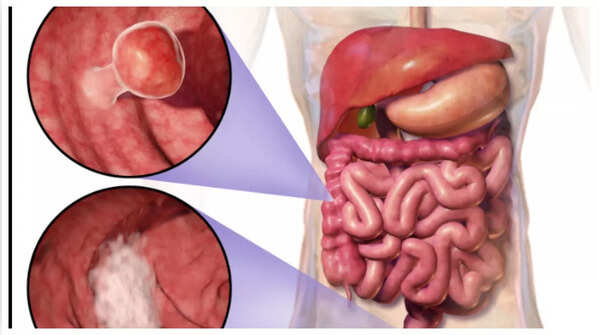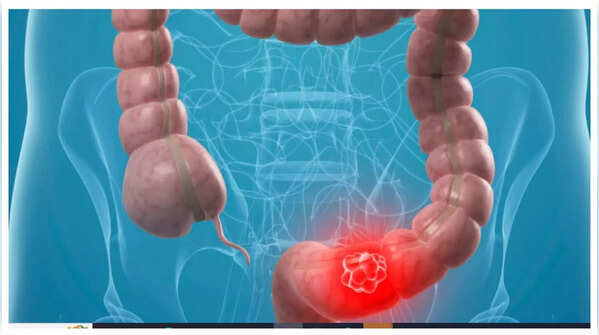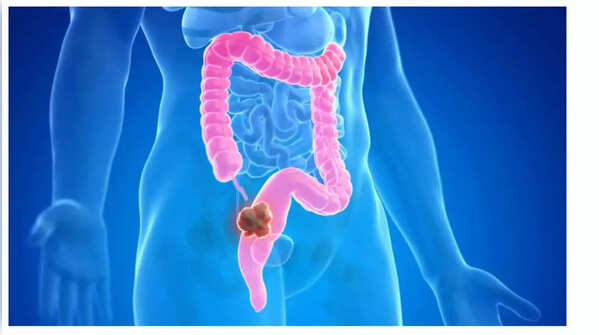Colon cancer, also known as colorectal cancer, develops in the colon or rectum. It often begins as small, noncancerous clumps of cells called polyps, which can become cancerous over time. While most cases occur randomly, family history, obesity, and lifestyle can increase the risk, especially after 50. Early symptoms can be subtle and mistaken for common digestive issues. Recognizing these early warning signs is crucial for timely intervention.

A noticeable change in bowel habits is often one of the first indicators. This can manifest as:
While these changes may seem minor and are often attributed to diet, stress, or infections, persistent alterations lasting more than a few days warrant attention. These changes suggest a potential tumor disrupting normal bowel movements.

The presence of blood in the stool is a symptom that should never be ignored. It can appear as:
In some cases, the bleeding may be minimal and undetectable to the naked eye, potentially leading to anemia over time. While blood in the stool can result from various conditions like hemorrhoids or infections, it's essential to rule out colon cancer, especially if it occurs repeatedly or alongside other symptoms.

Persistent abdominal discomfort is another early symptom often overlooked. This can include:
Such discomfort can be mistaken for indigestion or other minor digestive issues. However, if the pain is ongoing and unrelated to diet or lifestyle changes, it could indicate a tumor causing irritation or blockage in the colon.

Feeling unusually tired or weak without a clear reason can be a subtle sign of colon cancer, especially when accompanied by other symptoms. This often stems from slow, unnoticed bleeding in the colon, leading to iron deficiency anemia. With fewer red blood cells, the body struggles to carry sufficient oxygen, resulting in fatigue, shortness of breath, and weakness. While easily dismissed as stress or lack of sleep, these symptoms should be evaluated by a medical professional.

Losing weight without trying is a common symptom in many cancers, including colon cancer. When the body is fighting cancer, the immune system operates in overdrive, and tumors can impact digestion and appetite. Significant weight loss without changes in diet or exercise necessitates medical attention. While often appearing later, it can sometimes serve as an early warning sign.

Maintaining a well-balanced diet is crucial for overall health.

It is important not to ignore the aforementioned symptoms.

A cancer diagnosis significantly affects an individual's mental state.

Consult a doctor if you experience any of these symptoms. Do not wait for the symptoms to worsen.

Exercise helps in preventing many ailments including cancer.

Ensure that you do not ignore these symptoms.

If you observe these signs, immediately talk to a doctor.

Do not ignore these signs.

Identifying the symptoms before it is too late helps one to stay healthy.

Disclaimer: This article is for informational purposes only and does not substitute professional medical advice. Always consult with a qualified healthcare provider for any health concerns.
Sources:
Newer articles
Older articles
 Bangladesh Test Captain Najmul Hossain Shanto Resigns After Sri Lanka Series Defeat
Bangladesh Test Captain Najmul Hossain Shanto Resigns After Sri Lanka Series Defeat
 SA20 Auction: Teams Can Retain Up to Six Players as Salary Cap Jumps to $2.3 Million
SA20 Auction: Teams Can Retain Up to Six Players as Salary Cap Jumps to $2.3 Million
 Android Users Urged to Patch Now: Critical Security Flaws Expose Devices to Attacks
Android Users Urged to Patch Now: Critical Security Flaws Expose Devices to Attacks
 X Cracks Down: Over Half a Million Accounts Suspended in India for Policy Breaches
X Cracks Down: Over Half a Million Accounts Suspended in India for Policy Breaches
 What Your Phone Grip Says About You: A Personality Test
What Your Phone Grip Says About You: A Personality Test
 India's Squad Trimmed: Pacer Released Ahead of Second Test Against England in Birmingham
India's Squad Trimmed: Pacer Released Ahead of Second Test Against England in Birmingham
 Vegetarian Power: 20 Plant-Based Protein Sources That Outperform Eggs
Vegetarian Power: 20 Plant-Based Protein Sources That Outperform Eggs
 ICC Test Rankings: Pant Hits Career High, Bumrah Stays on Top, Root Leads Batters
ICC Test Rankings: Pant Hits Career High, Bumrah Stays on Top, Root Leads Batters
 Rishabh Pant Redefining Cricket: Greg Chappell Hails Wicketkeeper-Batter's Revolutionary Impact
Rishabh Pant Redefining Cricket: Greg Chappell Hails Wicketkeeper-Batter's Revolutionary Impact
 India's Fielding Woes and Top Order Collapse Blamed for First Test Defeat Against England: Former Selector Weighs In
India's Fielding Woes and Top Order Collapse Blamed for First Test Defeat Against England: Former Selector Weighs In